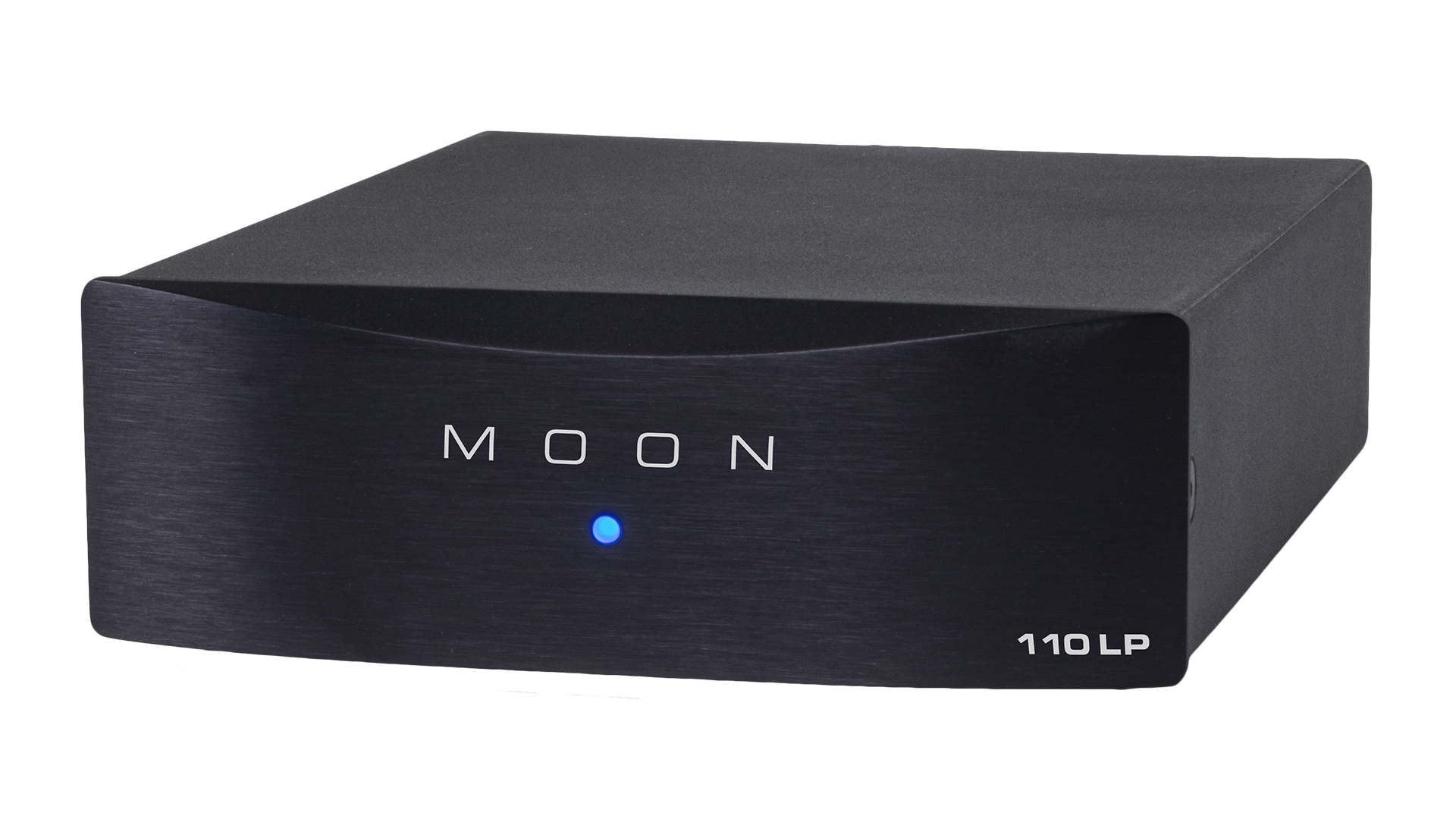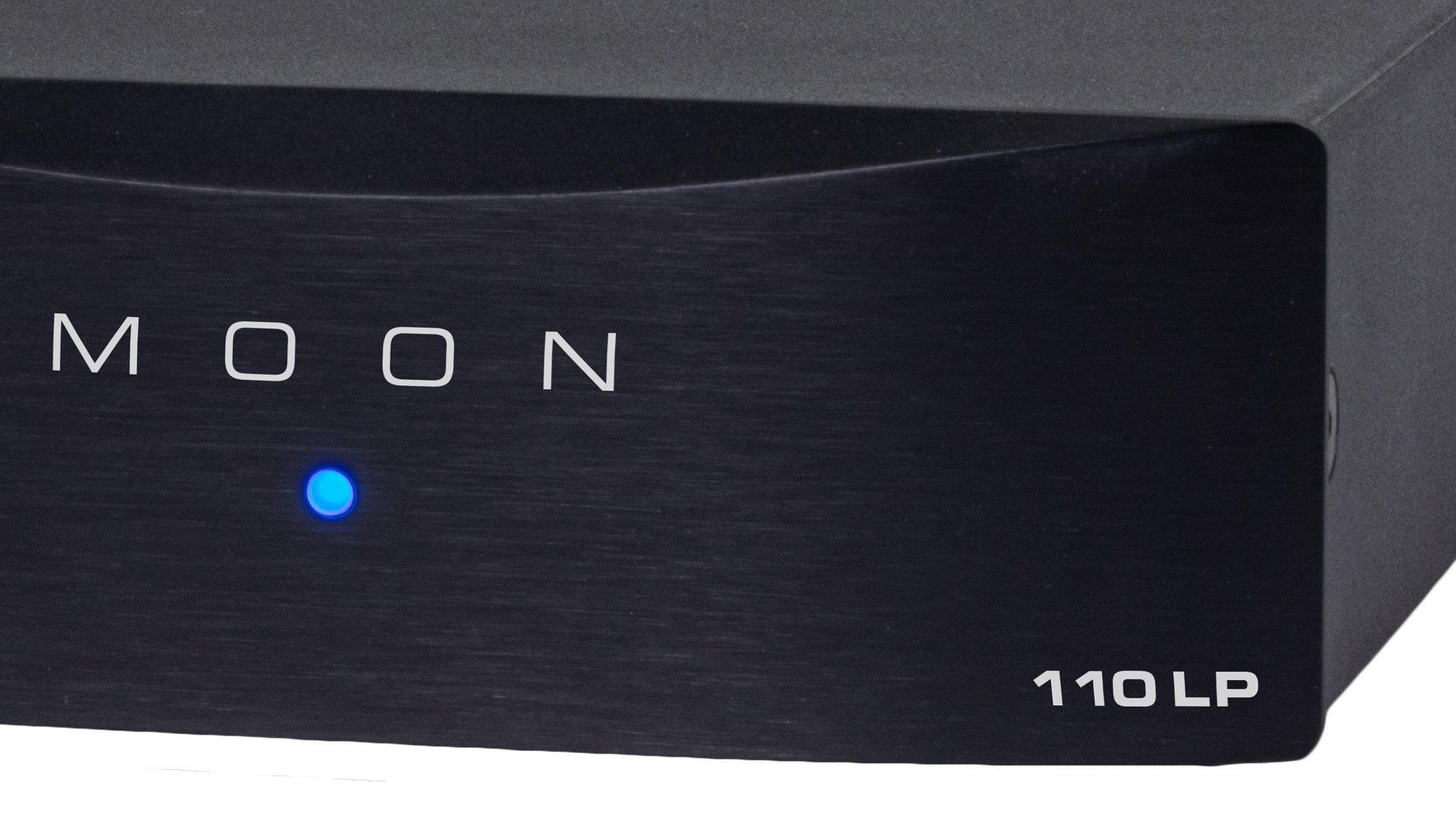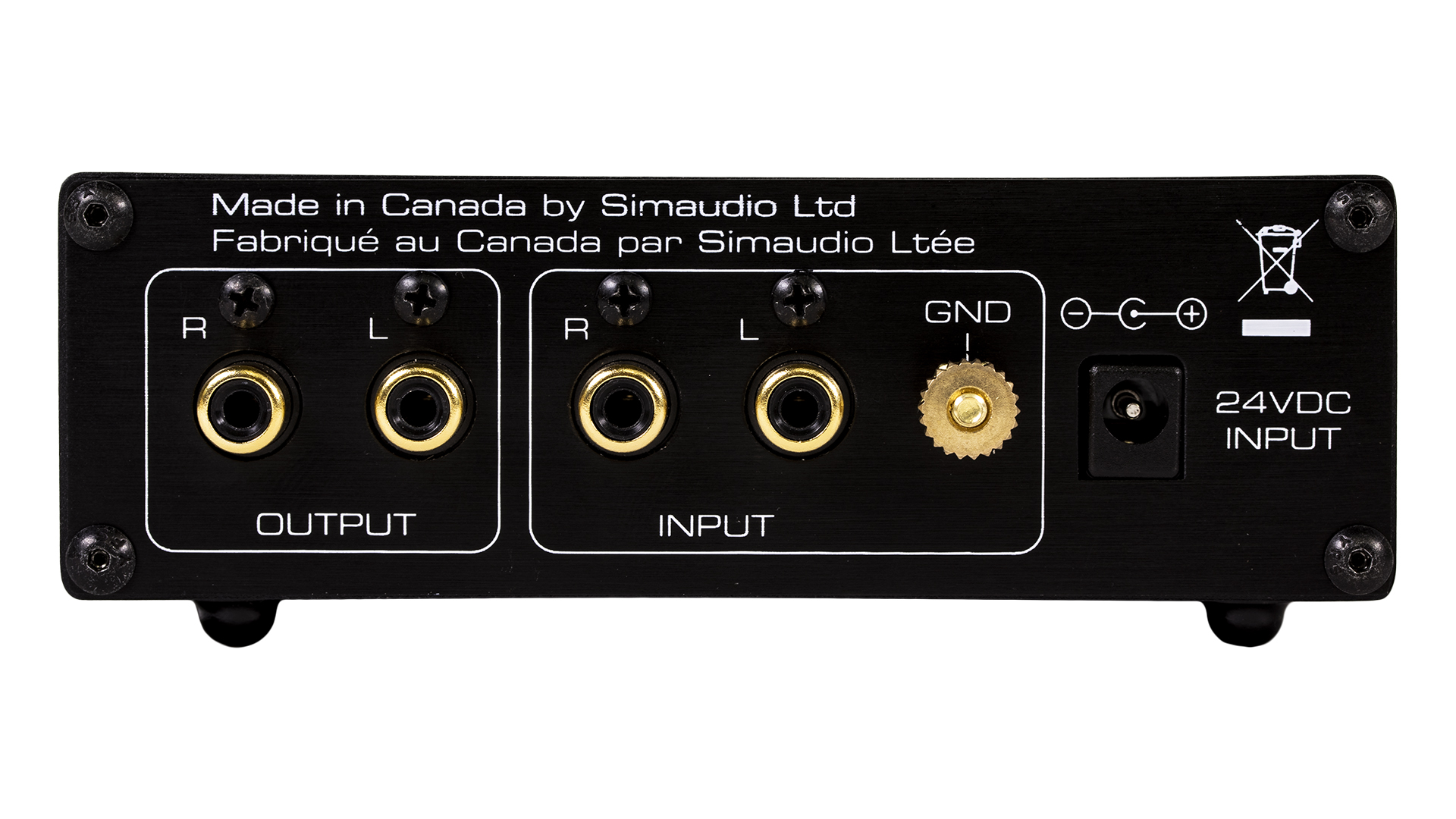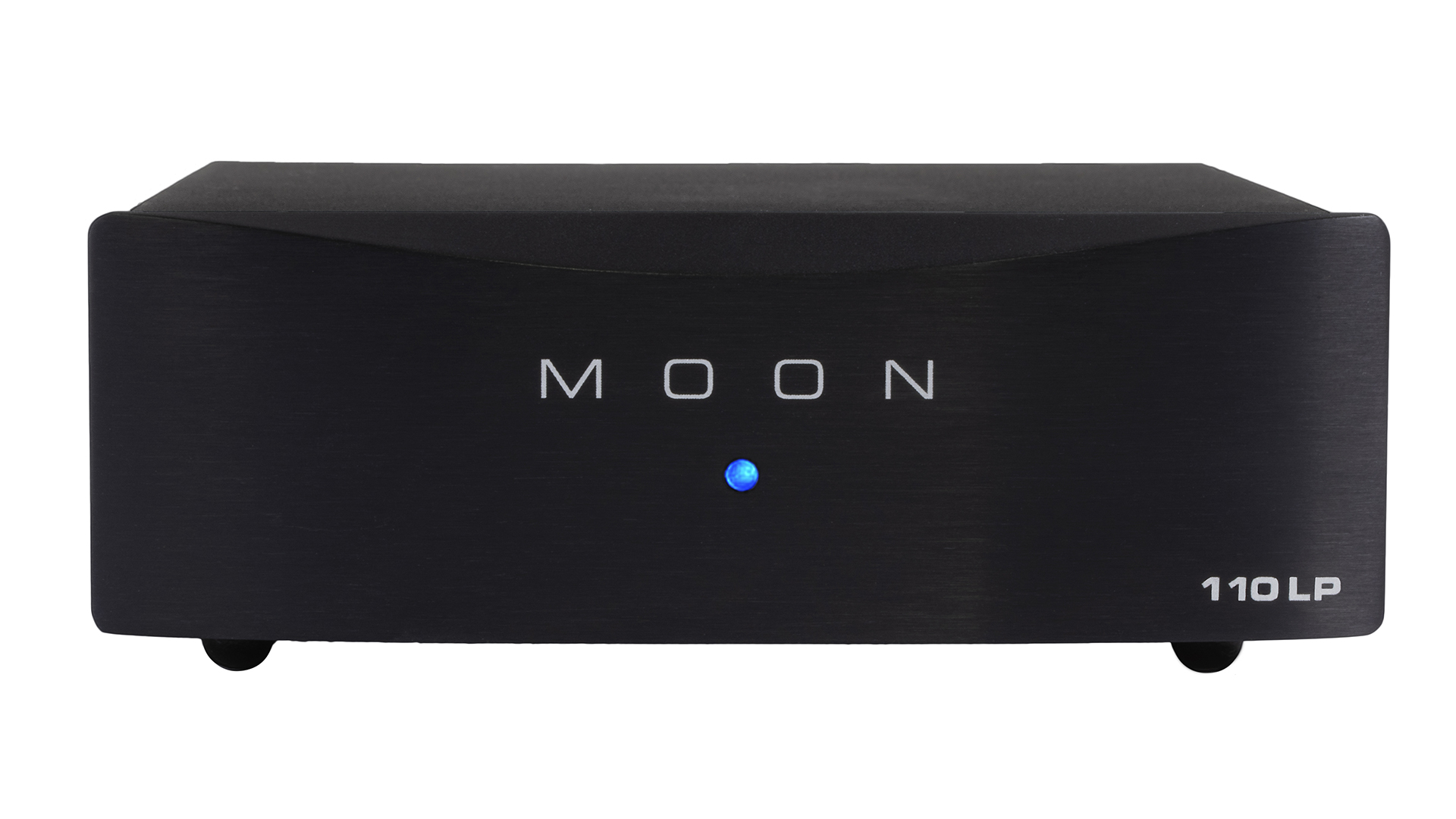
If you play records, no other electronic component in your system has as much impact on the sound as the humble phono stage. There aren’t many talented units around the £500 ($500) mark, so when we come across something as capable as Moon’s 110LP v2, it’s something to celebrate.
Build

This is a neatly made aluminium box finished to the high standards we’ve come to expect from Moon. The curved front panel is beautifully machined and makes the 110LP v2 look classier than most of the competition. This phono stage is a switchable unit capable of handling both moving coil and moving magnet cartridges.
Unlike most rivals, the Moon offers gain adjustment in four increments, starting from 40dB and continuing through to 66dB. This range should be enough to cope with every moving magnet design and all but the lowest output moving coil cartridges.
The phono stage’s gain is changed through a series of dipswitches on the underside of the unit, as are the various input capacitance and resistance values. Provided you know what the correct settings should be, it’s easy to manage – but check your cartridge’s specifications if you’re unsure.
Features

Elsewhere, the 100LP v2 is as simple as most affordable phono stages usually are. There’s a single input and partnering stereo RCA output (to go to your main amplifier), a power port for the wall socket adaptor and a grounding post. That’s your lot.

Inputs 1x pair RCA
Frequency response 20Hz - 20kHz
Weight 1.5kg
Dimensions (hwd) 4.2 x 12.7 x 16.5cm
Provided care is taken with placement, by keeping it away from other mains powered products and power cables, the 110LP v2 proves suitably quiet and hum-free too.
This is a fine sounding unit, particularly with moving magnet cartridges. It works well with Goldring’s 2400 mounted to our reference Technics SL-1000R record player, and we can’t see any reason why it wouldn’t work equally well with similarly capable Ortofons, Audio Technicas and Nagaokas.
The rest of the system is our usual Burmester 088/911 Mk3 amplifier and ATC SCM50 speaker combination to really put a spotlight on the Moon’s performance. We also give Cambridge Audio’s CXA81 integrated amplifier a go to see how this little phono stage delivers into more modest amplification.
As for comparisons, we have the cheaper MM-only Graham Slee Communicator (with PSU1 power supply) on hand, as well as the more premium Lindemann Limetree Phono. Overall the 110LP v2 sits well with such talented company.
Sound

This phono stage has the classic Moon sonic signature. Its sound is smooth, fluid and refined but has enough in the way of drive and punch to satisfy. We start with Beethoven’s Fifth Symphony and the 110LP v2 delivers an impressively spacious and expansive performance. Nothing sounds cluttered or confused and it’s easy to follow individual instrumental strands.
The stereo imaging is accomplished and remains stable even when the music becomes demanding. Overall, insight levels are good, though this isn’t a product that goes out of its way to highlight detail.
Each piece of information is presented in an unforced and subtle manner, meaning that in a short demo it would be easy to conclude that more forward-sounding rivals were more revealing. Give it a longer listen and it becomes clear that the Moon is right up there with the best at the price when it comes to resolution.
This unit has an undemanding nature, which makes it easy to listen to over long sessions. The aforementioned Graham Slee pulls ahead when it comes to dynamic punch and rhythm drive, but the Moon counters with greater refinement and sweeter tonality. The choice comes down to taste and partnering system, rather than a difference in absolute ability.
We move to Catch A Fire by Bob Marley and the Wailers and the 110LP v2 responds with a lovely flowing presentation that’s rhythmically surefooted. While the lowest notes are a touch rounded, there’s enough in the way of agility and articulation to make that something simply to note rather than a notable shortcoming.
As with most phono stages at this level, the Moon’s performance with moving coil cartridges is less impressive. There’s not much to complain about when it comes to noise levels or gain, but when we swap the Goldring MM cartridge for an Ortofon Quintet Blue MC, we note that large-scale dynamics sound a touch restrained and bass becomes softer. It’s important to note that you’d have to spend half as much again to get a phono stage that does appreciably better.
Verdict
The Moon 110LP v2 remains one of the best of its kind at this level. It’s better built than most and is certainly musically satisfying. If you’re in the market for a quality affordable phono stage, this little box is well worth auditioning.
Review published: 2021. Review updated: November 2024.
SCORES
- Sound 5
- Features 5
- Build 5
MORE:
Read our guide to the best phono stages







